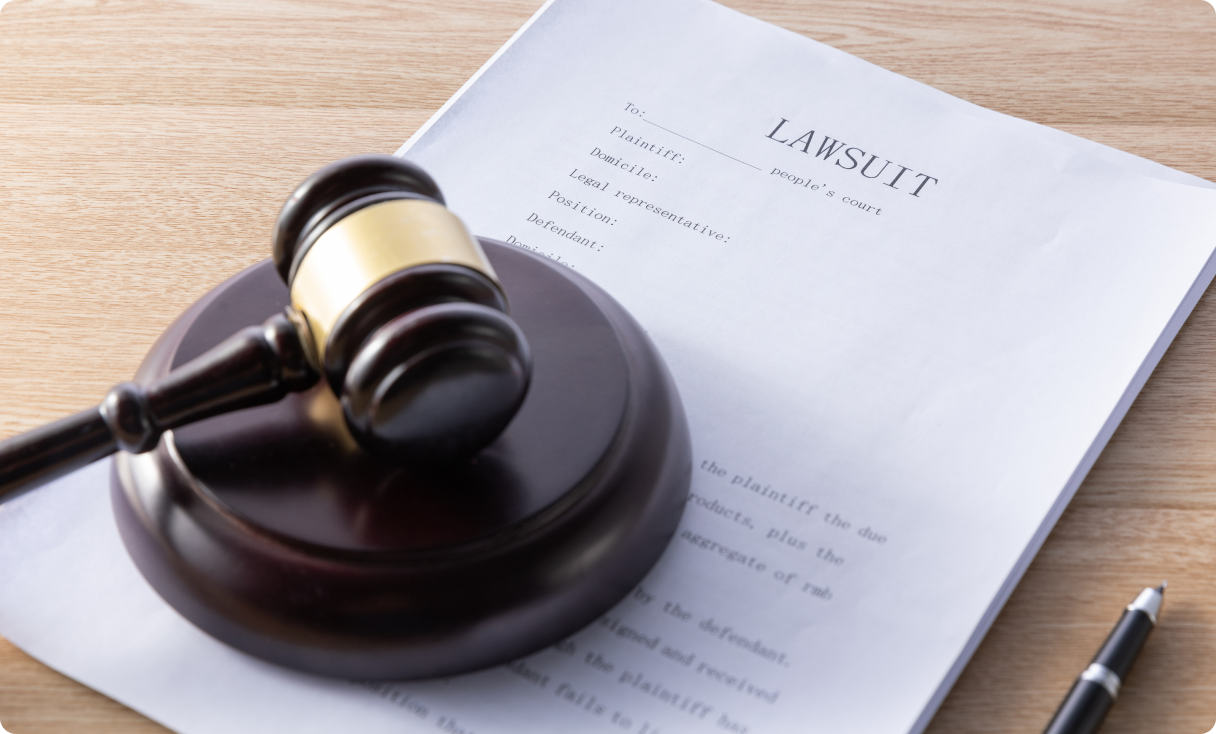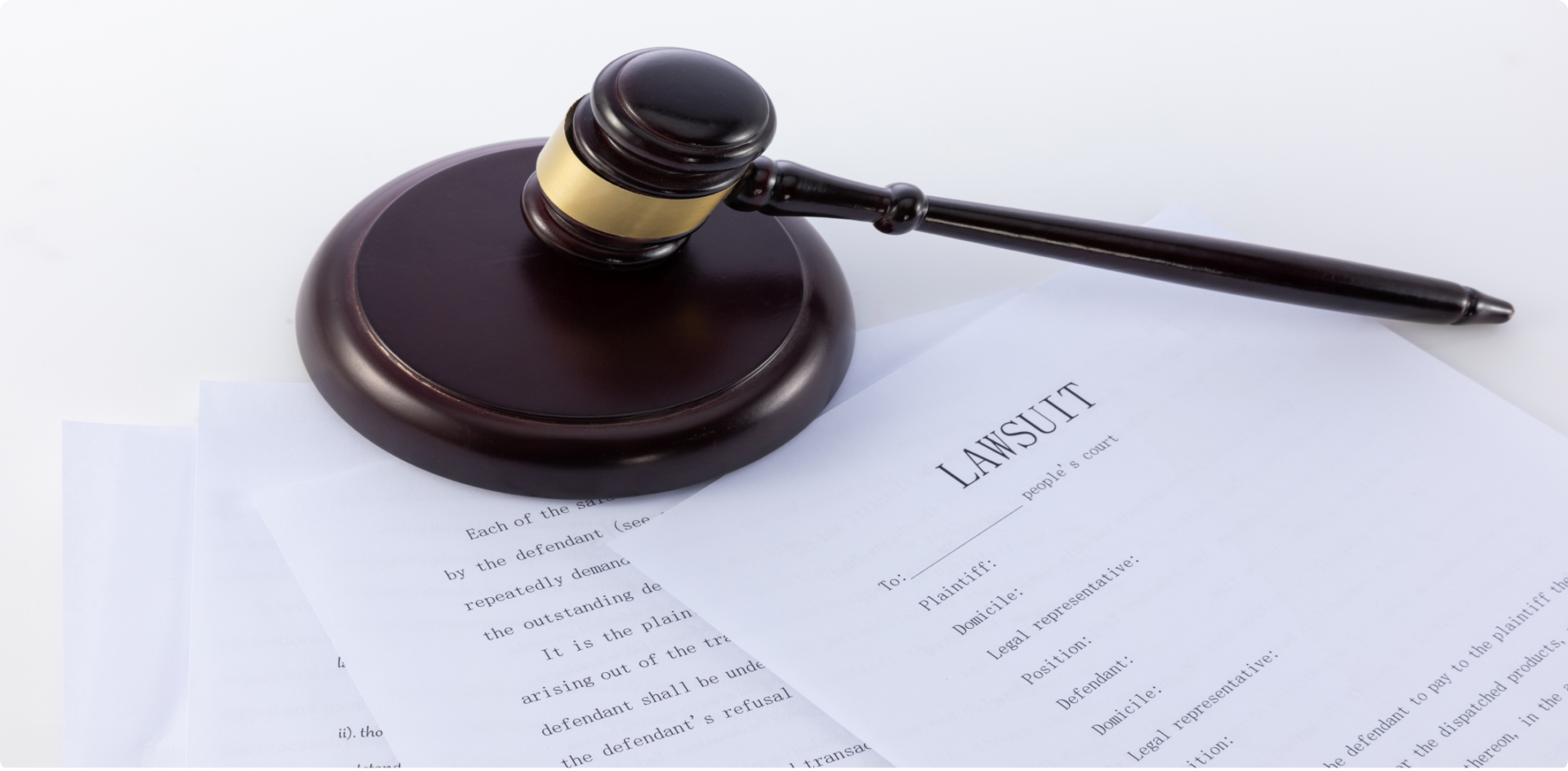
Can You Get Sued for Leaving a Bad Review
There’s no denying that the majority of businesses do their best to satisfy customers. But every once in a while, there’s a business interaction that may not go as smoothly as expected.
Whether it’s a faulty product, poor customer service, fishy policies, or an overall negative experience, dissatisfied customers would likely want to share their experiences online. The business’s Google Business Profile is the first place most customers head to. Then, there are third-party review sites and social media platforms where customers can voice their opinions.
The question arises: how far can you go in expressing your dissatisfaction without facing legal consequences? Can a business sue you for leaving a bad review? Let’s discuss.
Table of Contents
Can Leaving a Bad Review Get Someone Sued?
The short answer is yes. But getting sued over a bad review is a rare occurrence. Most often, businesses prefer to resolve customer complaints internally or through a mutually agreed-upon mediation process.
However, some businesses resort to legal action when they feel that their reputation or livelihood is at stake. They may argue that the negative review caused them financial harm or damaged their reputation.
In such cases, businesses may sue for defamation or take a similar route. Their case would likely involve proving that the review was false and caused them quantifiable damages.
So, while it’s possible to get sued for a bad review, it’s not very common. If a customer leaves a bad review that’s completely truthful and based on their personal experience, they’re within their legal rights to do so. In fact, we’ll explain further that there are actual laws that protect consumers’ rights to leave honest reviews.
Reasons for Suing Over Bad Reviews
If a business plans to take a legal route, it must have a solid reason to do so. In most cases, businesses sue over bad reviews for the following reasons.

Defamation
In the simplest words, defamation means making a false statement that damages someone’s reputation. For example, if your neighbor says that you’re a thief, and it causes others to avoid you or look at you suspiciously, they’ve defamed you.
Similarly, if someone posts a false review claiming that the business owner is a scammer, it can be considered defamatory. In such cases, the business owner may have grounds to sue for defamation.
Defamatory statements can be of two types:
Libel: These are written statements, such as a review on a website or social media post.
Slander: Oral defamatory statements, such as someone saying something false about a business in their YouTube review, are called slander.
As a result of defamation, a business can lose its customers and suffer financial losses. The business owners may also experience a tarnished reputation. Their personal relationships may be affected, too, as their friends and family might believe the defamatory statements.
If the business sues the reviewer and they win the case, the reviewer will be liable to pay compensation for damages caused by their defamatory statements. They may also be ordered to take down their review or post a public apology.
False Statements or Misrepresentation
A business can also sue over false statements or misrepresentation. This is slightly different from defamation in that the statement itself may not be damaging, but it is still false and misleading.
For example, if a customer posts a review claiming that the business has a certain certification or award when they do not, this could be considered false advertising. Another example is a review falsely claiming that the business offers a service or product that they do not.
In theory, these statements may not sound so bad. However, they are still damaging because what happens when a customer falsely believes these reviews and then sets expectations that the business is unable to meet? It would cause dissatisfaction and potential customer churn.
For a review to be considered false, it needs to be:
- Untrue
- Published on a third-party platform
- Non-privileged, meaning the reviewer is not protected from legal action
- Clearly stated as a fact and not an opinion
The reviewer, if found guilty, may face similar consequences as with a case of defamation.
Intentional Infliction of Emotional Distress
If a review is straight-up harassing or bullying, the business may be able to file for intentional infliction of emotional distress. However, for this to happen, the review should be more serious than a petty annoyance or an insult.
The business would need to prove that the reviewer intended to cause emotional distress and acted in a reckless or extreme manner. For example, if the reviewer uses hate speech or makes physically threatening statements, this could be considered intentional infliction of emotional distress.
The burden of proof for this type of case is higher and may require legal assistance. Concrete evidence and documentation of the review and its impact on the business owner’s emotional state would be necessary in court.
If proven, the business may be able to receive compensation for emotional distress. The review will also be taken down.
Negative Google Review Removal
Remove Fake or Negative Google Reviews with Maximatic Media’s Online Reputation Management Service!

Which Legal Protections Do Reviewers Have?
While it’s possible to sue reviewers, it’s not always easy. Consumers are protected by many legal measures that allow them to express their opinions and experiences without facing consequences. These laws protect their freedom of speech and also encourage honest feedback for businesses.

Here are some legal protections reviewers have.
First Amendment
In the US, the First Amendment protects the right to freedom of speech, including online reviews. In simple words, businesses cannot sue reviewers just because they don’t like what they said. However, this protection is not absolute and does have limitations.
For example, if the review contains false and defamatory statements, it may not be protected by the First Amendment. The First Amendment also doesn’t protect against criminal activities or inciting violence.
Communications Decency Act
The Communications Decency Act (CDA) is a part of the US Telecommunications Act of 1996. Initially, it was intended to regulate indecent material on the internet, but it has since been used for other purposes.
Section 230 of the CDA protects online platforms and service providers from being held liable for content posted by their users. So, a business cannot sue a review platform or website for a negative review posted by a customer.
Consumer Review Fairness Act (CRFA)
The Consumer Review Fairness Act (CRFA) is a US federal law that gives consumers the right to post their honest opinions about a business’s products or services. The CRFA prohibits businesses from using non-disparagement clauses in consumer contracts, which restricts customers from posting negative reviews.
Since honest feedback helps keep businesses accountable and protect future customers from bad experiences, the CRFA promotes a fair and competitive marketplace. It is the strongest federal protection for online consumer reviews.
The law doesn’t only protect online reviews. It also covers consumer assessments, social media posts, uploaded videos, photos, and customer evaluations of a business’s customer service. For example, user-generated content (UGC) like images or videos that people post on social media about a brand are covered by this law.
As per this law, a business cannot bar someone from reviewing their conduct, products, or services. The company cannot penalize (or impose a fee) on someone who leaves a review either.
However, there are a few exceptions. A company may remove or prohibit reviews that contain private and confidential information, such as someone’s financial or medical information. Reviews containing abusive, vulgar, libelous, and sexually explicit content can also be prohibited. Similarly, if a review is inappropriate toward a race, ethnicity, gender, or sexuality, it can be removed.
Anti-SLAPP Laws
Anti-SLAPP (Strategic Lawsuit Against Public Participation) laws are state-level statutes that protect individuals from retaliatory lawsuits for exercising their First Amendment rights. These laws prevent powerful entities like big businesses from using lawsuits to intimidate or silence individuals who criticize them.
One of the main purposes of anti-SLAPP laws is to promote and protect free speech. Online reviews are a part of this protected speech.
If a business tries to sue a customer who is simply exercising their right to leave a review, the customer can use anti-SLAPP laws to defend themselves. So, businesses must make sure their claims against customers are not baseless or retaliatory so that they can have a strong case.
While anti-SLAPP laws protect customers from baseless lawsuits, businesses still have the right to sue reviewers if the review contains defamatory statements or false claims. Beyond defamation, businesses may also pursue legal action if a review includes other illegal activities, such as revealing confidential information. Similarly, reviews that are part of a targeted smear campaign or contain threats could also justify legal action.
When Can a Business Sue For a Bad Review?
As a business, if you plan to sue a reviewer, keep one thing in mind: the burden of proof is on you. In a lawsuit, the plaintiff (the party filing the suit) must prove that the defendant (the party being sued) broke the law or committed a wrongful act. So, it’s you who needs to come up with evidence that the review is false, defamatory, or malicious.
If you cannot provide sufficient proof to support your claim against a reviewer, you could be subject to anti-SLAPP laws and potentially face legal consequences yourself. Therefore, it’s important that you’re fully prepared.

Here are a few things you need:
- A Solid Case: Make sure you have sufficient evidence to support your claim. You can include proof of financial harm, false statements made in the review, or any other relevant evidence that shows the review is not based on a genuine customer experience.
- Legal Representation: Suing someone over a review isn’t a DIY task. It’s something you need professional assistance for. Hire a lawyer who is well-versed in anti-SLAPP laws and defamation cases.
When preparing for a case, it’s best to document anything and everything. Even if it may seem like insignificant information, it could potentially help your case.
Remember that litigation isn’t an easy or quick solution. It can be a long and expensive process, so you should be prepared to spend your time and money on it. In the meantime, the review may continue causing harm to your business.
A comparatively cheaper and quicker alternative is removing or suppressing the review altogether. In a BrightLocal survey, 31% of consumers (the highest) said that they would consider a business if it had 20 to 49 reviews. However, consumers don’t read all those reviews; many consider only the most recent ones.
If you can somehow bury the negative review under a pile of positive ones, it’s less likely to harm your business. Or, you can simply use a negative review removal service from an online reputation management agency like Maximatic Media.
We specialize in removing negative reviews from Google to keep your online reputation clean. Plus, we use a combination of legal maneuvering and other tried-and-tested tactics to make sure the negative review doesn’t cause you any trouble. You only pay once the review is taken care of, so it’s a risk-free solution.
Get in touch
Got a query that Nikolas Lemmel can help you with?
Conclusion
Customers have the complete right to share their experience with a business with others. It not only helps other consumers make informed decisions but can also be a source of constructive feedback for businesses.
However, sometimes, reviewers may cross a line and leave unfair or even false reviews, which can stain a business’s reputation. At Maximatic Media, we help such businesses get rid of negative reviews from their Google Business Profile. Our experts have years of experience providing this service, so we can guarantee a high success rate of over 75%.
Reach out to check if your business qualifies for our negative review removal service.
Check out other Blogs

How to Dispute a Google Review
It takes a lot of effort and time to start a local business. You put all your heart and soul int…

How to remove bad reviews from Google My Business
Google lets customers leave reviews, whether based on real complaints, someone having …

How to Reply to Google Reviews: Simple Strategies That Work
Your Google reviews hold more power than you think. They shape how others see your b…

